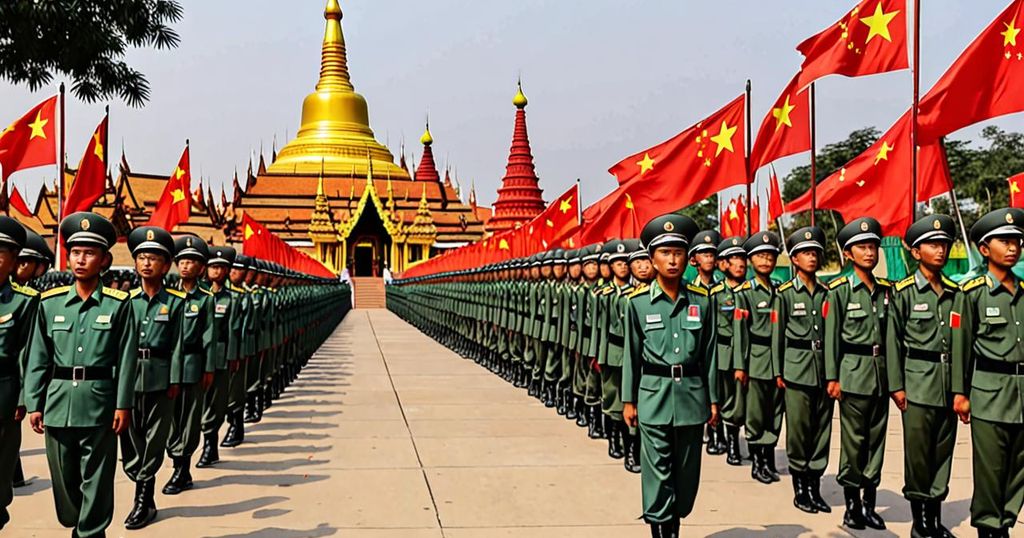The Growing Influence of China as Myanmar’s Junta Loses Control
Myanmar’s ruling authorities are currently confronted with a series of challenges as armed resistance factions amass more influence, particularly in the country’s northern region. This shift in power dynamics is proving to have a substantial impact and has granted China greater leverage over the nation’s governing military junta.
The United States Institute of Peace (USIP) has disclosed that the Three Brotherhood Alliance, a coalition of ethnic groups, has been steadily gaining control over critical areas since late last year. This includes the seizure of a regional military base in the northern Shan State, an area of great significance for China’s Belt and Road Initiative and border trade.
The Three Brotherhood Alliance has extended its influence to central Myanmar, encompassing vital areas such as Lashio, Kyauk Mae, and regions near Mandalay, the nation’s second-largest city. These developments have garnered attention, with Professor Zachary Abuza of the National War College in Washington pointing out the significance of opposition forces capturing the strategic city of Lashio, which is pivotal as a crucial town on the highway between Mandalay and the Chinese border of Ruili.
In light of these recent power shifts, China has assumed a more active role. China dispatched its special envoy, Deng Xijun, to Myanmar to confer with the country’s military leader, senior general Min Aung Hlaing. While the official discussions between the two parties centered on election preparations and maintaining stability at the border, there are reports of China’s efforts to facilitate peace talks with the Three Brotherhood Alliance. These peace talks, initially scheduled for the end of July, were purportedly boycotted by the regime, but China is urging for the next round of talks to take place soon.
As Myanmar’s ruling junta encounters mounting challenges, there is an increasing reliance on China for support. In an attempt to appeal to Chinese interests, Min Aung Hlaing proposed to resume the long-delayed Myitsone Dam project in Kachin State in April 2024. The project, backed by China, was halted in 2011 following protests over its potential environmental and social impact. This marks a significant shift in Myanmar’s approach, as 90% of the electricity the project was expected to generate was intended for export to China.
China has also been engaging with former military elites, such as Thein Sein and Than Shwe, signaling its concerns about Min Aung Hlaing’s leadership. Former President Thein Sein visited Beijing in July, and the Chinese ambassador to Myanmar visited former military chief Than Shwe in April. According to a recent USIP analysis, these interactions send a strong message that Beijing hopes Myanmar will return to a pathway of reform like the one initiated by the military in 2008.
In conclusion, the evolving power dynamics in Myanmar have presented China with an opportunity to bolster its influence. As the ruling junta contends with internal and external challenges, China’s role in Myanmar’s future is growing increasingly significant.








Post Comment